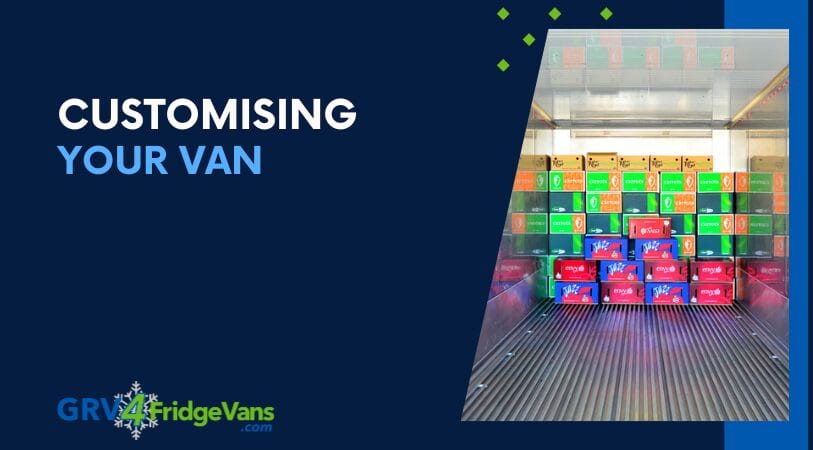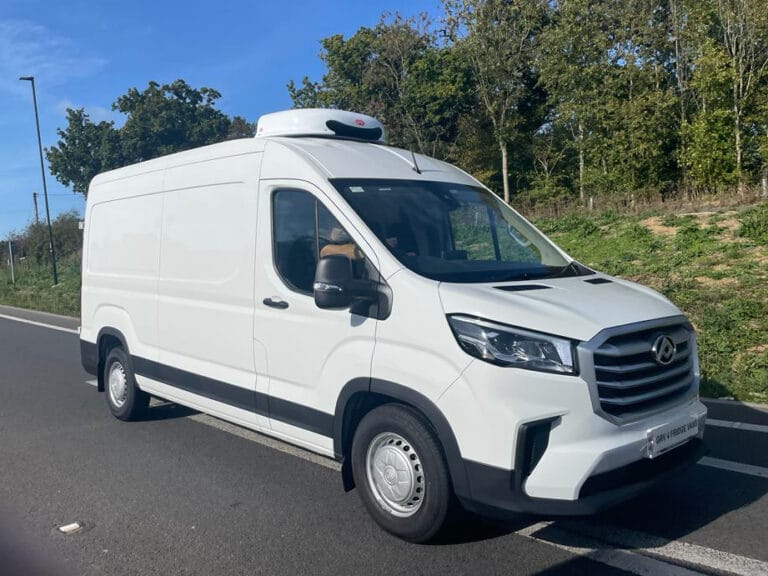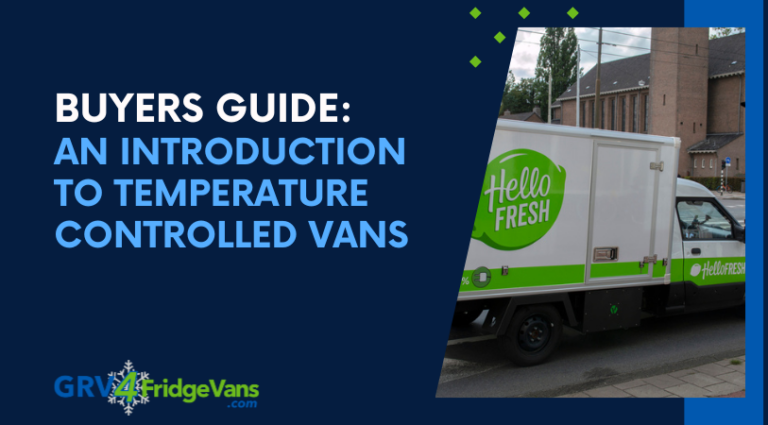A temperature controlled van can transform your business, allowing you to reach more customers than ever before. Without this essential piece of business equipment, you would be limited in how you can transport goods, and some industries would find it entirely impossible to operate.
With this in mind, we’re looking at some of the things buyers need to be aware of before they start their journey to securing a temperature controlled van for their business. We’ll explore the types of vans available, and how you can choose the right van for your needs.
What is a temperature controlled van?
A temperature controlled van is also known as a refrigerated van. In short, the payload area is insulated and then a refrigeration unit allows you to select the temperature inside the van. This allows you to transport temperature-sensitive items like prepared food, meat, fish, dairy, fruit, vegetables, flowers, pharmaceuticals and more.
The insulation not only helps to maintain a cool temperature in hot weather, but it also protects the contents in very cold weather. This can help to protect items against freezing, particularly when left in storage overnight.

How do I choose a temperature controlled van?
Just as there are many different types of work vans available, so too are there many types of temperature controlled vans to choose from. In fact, most vans with an enclosed cabin can be converted into a temperature controlled van with a few modifications. You can also buy a purpose-built temperature controlled van that can then be customised to your needs.
The main difference in the type of vans available is in the way the refrigeration unit is powered. This will influence how you use the van and if it can be used for overnight storage or not.
Refrigerated vans are typically powered by one of several methods to ensure that the cargo area remains at the desired temperature:
- Direct Drive Systems: Many refrigerated vans use direct drive systems where the refrigeration unit is powered by the vehicle’s engine. This setup typically involves a compressor that is directly connected to the vehicle’s engine via a belt or similar mechanism. As the vehicle’s engine runs, it drives the compressor, which in turn powers the refrigeration system.
- Stand-Alone Diesel or Petrol Engines: Some refrigerated vans feature stand-alone diesel or gasoline engines to power the refrigeration unit independently of the vehicle’s engine. These engines are located on the refrigeration unit itself and are designed to run continuously while the van is in operation. They are commonly found in larger refrigerated trucks and trailers.
- Electric-Powered Systems: With the rise of electric vehicles (EVs) and increasing environmental concerns, there’s a growing trend towards electric-powered refrigeration systems for vans. These systems may draw power from the vehicle’s main battery pack or have separate battery systems dedicated to running the refrigeration unit.

How to choose the right van for your needs
The number one consideration when choosing a van is the size and configuration of the van. It needs to be large enough to meet your needs now, while also ensuring your business has room to grow.
It should also have a practical layout that is suitable for your needs. For example, catering companies might choose a split layout that allows for different temperature zones.
The main types of vans available include:
- Panel Vans: These are standard vans with insulated panels installed in the cargo area and a refrigeration unit mounted on the exterior. They are versatile and commonly used for transporting perishable goods over short to medium distances.
- Box Trucks: Also known as refrigerated trucks or reefer trucks, these are larger vehicles with a separate refrigerated compartment attached to the chassis. Box trucks offer more space and are suitable for long-distance transportation of perishable goods.
- Sprinter Vans: These are mid-sized vans with refrigeration units installed in the cargo area. Sprinter vans are popular for urban deliveries and smaller-scale operations due to their manoeuvrability and fuel efficiency.
- Transit Vans: Similar to Sprinter vans, transit vans are another type of mid-sized commercial van with refrigeration capabilities. They are commonly used for local deliveries and distribution.
You also need to consider the environmental impact of your vehicle choice and determine if you require an electric vehicle to be able to operate. For example, those working in London can benefit from an electric vehicle as it will enable them to avoid the ULEZ charges.
Electric vehicles are excellent for making multiple short trips, whereas petrol and diesel vehicles can be more economical for longer trips. A hybrid vehicle will offer the best of both worlds.

Customising your van
A key part of making a temperature controlled van work for your business lies in the post-purchase customisations. This could include installing specialist racking that meets the needs of your business and makes it easier to load and unload goods.
You may also have regulatory requirements you need to meet, which could mean you need smart controls to continually monitor the temperature in your van. Multiple temperature probes throughout the van can be relayed to a smart device such as a phone or tablet and alert you if the temperature falls outside of the required parameters.
You might also choose a van with dual temperature zones, which would enable you to have a deep freeze section and a refrigerated section, or an ambient zone alongside a refrigeration section. This layout is popular for food delivery companies and for catering companies. It’s also highly effective for chemical suppliers and pharmaceutical companies.

Closing thoughts
Before taking the plunge and choosing a temperature controlled van for your business, you need to take the time to consider your core needs and wants. Start with the basics, such as the size of the van, and then determine how you plan to use it.
If you will be using it for overnight storage, you’ll need a backup generator to provide power in the event your main source fails. You also need to consider how you will customise the van to make it suitable for your needs. If in doubt, ask other business owners in your industry how they use temperature controlled vans to meet their requirements.




